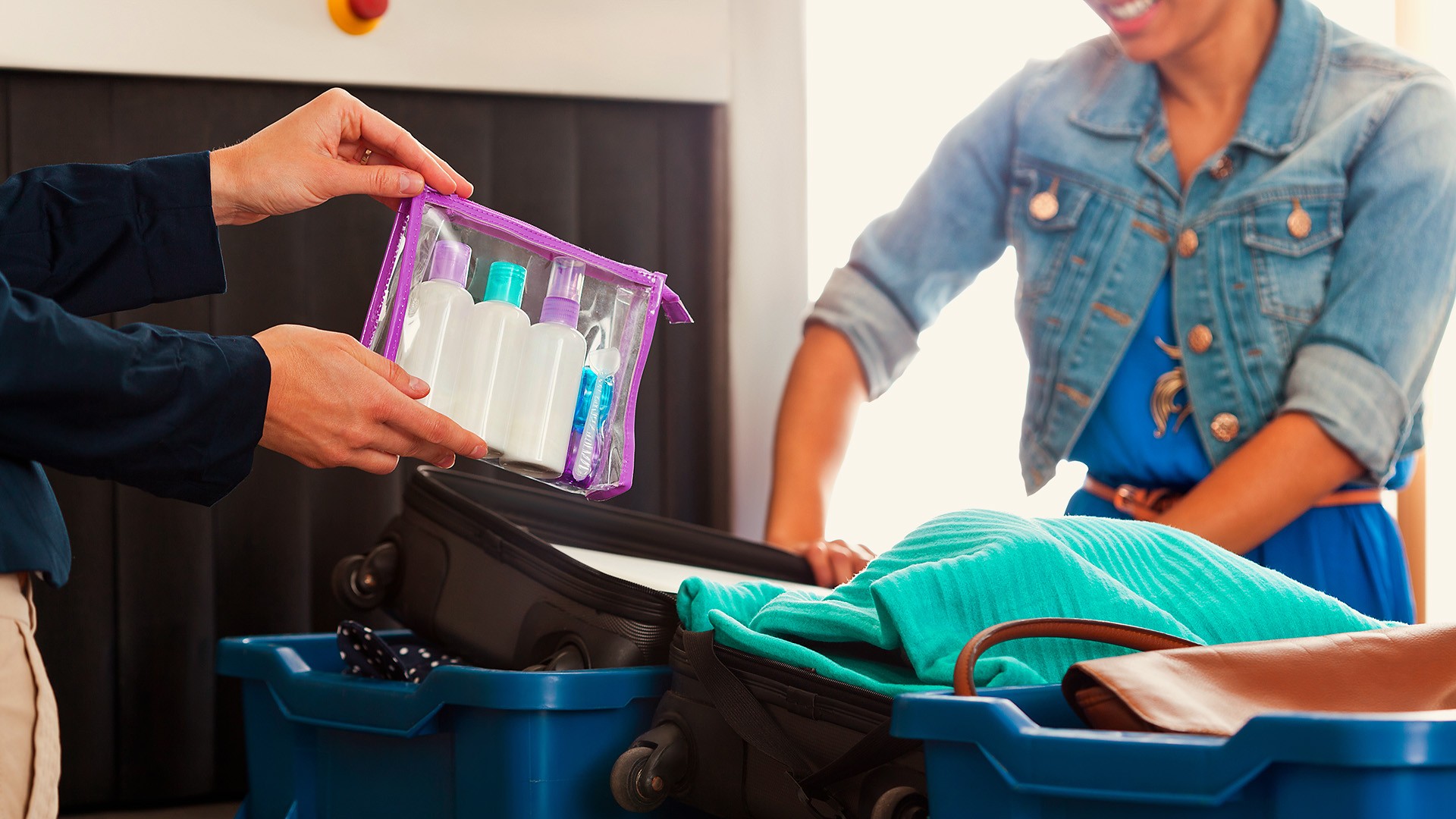New European regulations
As from 6 November 2006, all flights from EU airports, to all destinations and with all airlines, are covered by an EU regulation on liquids in cabin luggage (EC regulation no.1546/2006).
All liquids carried in cabin luggage must be individual containers with maximum volume of 100 ml each. They must be carried in a reclosable transparent plastic bag, with maximum volume of 1 litre (like a freezer bag), and must be shown to the security personnel for inspection. You must be able to close the bag securely, and the security personnel must be able to open it to check its contents. Press-seal or a “Ziploc” type bags are suitable.
Exceptions are made for medication and special dietary products, including baby food, that are needed during the flight. You can carry more than 100 ml of medication if you need it on the flight.
The following are included as "liquids”: water and other drinks, soups, syrups, perfume, gel (including hair gel and shower gel), paste (including toothpaste), creams, lotions and oils, sprays, products in pressurised containers (shaving foam, deodorant, etc.), liquid/solid mixtures and other substances of similar consistency.
The rules on carrying liquids in hold luggage haven’t changed.
Any liquids you buy in shops after the boarding card checks at Luxembourg airport are placed in a sealed bag, and the volume restrictions described above don't apply to them. Passengers in transit to another EU airport will need to keep these purchases in the sealed bag and keep their proof of purchase, as they will be screened.
New security rules in EU airports
Important clarification on restrictions on liquids in aircraft: medications and special dietary products
Some diabetics have complained of airlines and airports restricting the volume of insulin in their cabin luggage. The AEA (Association of European Airlines) authorities have issued the following clarification to make sure the new rules are not applied too strictly.
The rules allow passengers to carry with them any medication and special dietary products they need during their journey. The “journey” means the outward flight, time spent at the destination, and return flight, and is different from the “flight”.


